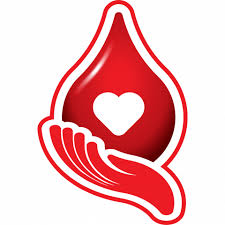The Advantages of Blood Donation that Result in Immediate Satisfaction
Overview
Donating blood is a commendable endeavor that preserves human lives and provides immediate satisfaction to those who contribute. Instant gratification pertains to the prompt gratification or enjoyment of a specific action. This essay will examine the advantages of blood donation that result in immediate satisfaction and enduring contentment.

The Prompt Effects of Blood Donation
1. Enhancement of Emotional State
One of the initial advantages associated with blood donation is the enhancement of mood experienced by donors. Being aware that you have contributed to a cause that saves lives triggers the production of endorphins, commonly called the “feel-good” hormones, which enhance mood and foster well-being.
2. Feeling of Achievement
Moreover, the act of donating blood provides individuals with a profound sense of achievement. Contributing to the community and preserving an individual’s life engenders a sense of pride and satisfaction.

Advantages for Health
1. Decreased likelihood of developing cardiovascular diseases
Consistent blood donation is linked to a decreased likelihood of developing cardiovascular illnesses. Donation has a crucial role in mitigating the accumulation of detrimental substances, including iron, which can potentially contribute to the development of cardiovascular diseases by reducing blood viscosity.
2. The process of blood cell regeneration
Furthermore, the act of donating blood serves to boost the process of blood cell renewal. This process facilitates the generation of novel, robust blood cells, enhancing the overall circulation and oxygen transportation over the entirety of the organism.

Contribution to the community
1. Preserving Human Life
They are primary advantage of blood donation is the potential to preserve lives. Blood transfusions play a vital role in a wide range of medical treatments, encompassing surgical interventions, trauma management, and the management of chronic diseases. By giving blood, individuals actively contribute to these endeavors to save lives.
2. Enhancing Social Cohesion within the Community
Moreover, blood donation enhances communal cohesion by cultivating a feeling of solidarity and collective accountability. Communities that actively engage in blood donation drives frequently cultivate stronger social bonds and experience an enhanced sense of unity.

Individual Satisfaction
1. Recognizing Your Contribution to Others
One of the most gratifying facets of blood donation lies in the awareness that one’s gift has yielded a palpable impact on the life of another individual. Donors play a vital part within the healthcare system, whether assisting a patient undergoing surgery or supplying blood to a trauma victim.
2. Developing Empathy and Compassion
Furthermore, the act of donating blood fosters the development of empathy and compassion towards individuals. Through direct observation of the effects of their contributions, individuals cultivate a more profound comprehension of the difficulties encountered by those who require assistance, thus nurturing a more compassionate perspective on life.

Social acknowledgment
1. Acknowledgment from colleagues and the community
The act of donating blood frequently garners individual’s acknowledgment from both their peers and the broader society. Donors obtain reinforcement for their charitable actions, which enhances their sense of belonging and social acceptance, whether through social media acknowledgments, community awards, or simple expressions of gratitude.
2. The positive influence on self-esteem
Furthermore, the favorable feedback obtained from blood donation enhances one’s self-esteem and self-value. Recognizing the positive influence one has had on another individual’s life reinforces one’s inherent qualities of compassion and care.

Enduring Contentment
1. Establishing a Practice of Generosity
Regular blood donation cultivates a propensity for altruism that transcends the act of donating. Donors frequently actively pursue alternative avenues to volunteer work or contribute to charitable endeavors, resulting in a lifelong commitment to selfless conduct and individual contentment.
2. The enduring influences on the lives of others
There are more of blood donations transcend the immediate satisfaction encountered by individuals who contribute their blood. Blood donors can preserve several lives and provide an ongoing advantage to patients even after the donation is completed, establishing an enduring heritage of empathy and kindness.
3. Enhanced Physical Well-being
The act of donating blood provides a multitude of advantages that extend beyond acts of selflessness, hence promoting improved physical health. Regular blood donation has been shown to decrease the risk of cardiovascular disease by reducing iron levels, promoting the creation of blood cells, and regulating iron levels in disorders such as hemochromatosis. The use of health exams before to donation facilitates the timely identification of health concerns, while the act itself promotes psychological well-being through acts of compassion. Research suggests a possible correlation between selfless actions such as donating blood and a longer lifespan. In general, blood donation serves the dual purpose of preserving lives and enhancing the well-being and lifespan of the donor.
4. Improved Blood Circulation
Blood donation has several physical health benefits in addition to its emotional benefits. Donation enhances blood circulation by decreasing blood viscosity reducing the likelihood of hypertension, stroke, and other cardiovascular ailments.
5. Reduced likelihood of developing specific types of cancer
Existing research indicates that consistent engagement in blood donation has the potential to reduce the likelihood of acquiring specific types of cancer, including liver, lung, and colon cancer. Donation is crucial in mitigating oxidative damage and diminishing the propensity for malignant cell proliferation by effectively removing surplus iron from the body.

Psychological well-being
1. Decreased levels of stress
The act of donating blood has been demonstrated to have a positive impact on stress reduction and relaxation. Assisting others can give individuals a sense of purpose and satisfaction, mitigating anxiety and tension and ultimately resulting in enhanced mental well-being.
2. Enhanced Cognitive Clarity and Concentration
Furthermore, the act of donating blood can improve cognitive understanding and concentration. Donors’ cognitive function and attention are enhanced through the production of endorphins throughout the donation process, resulting in heightened alertness and attentiveness.
Purposefulness
3. Discovering Significance by Assisting Others
Donating blood often imbues donors with a profound sense of purpose and significance. Recognizing that they have positively influenced someone else’s welfare reinforces their feeling of importance and contribution to the collective welfare.
4. Promoting a Feeling of Inclusion
Moreover, blood donation cultivates a feeling of inclusion within the community. Donors enhance their social bonds and develop a shared sense of societal responsibility by actively engaging in a collaborative endeavor to strengthen the well-being of others.

The economic advantages
1. Complimentary Health Examinations
Blood donation frequently encompasses complimentary health examinations for donors. These exams facilitate the early detection of potential health concerns, enabling individuals to take action.





